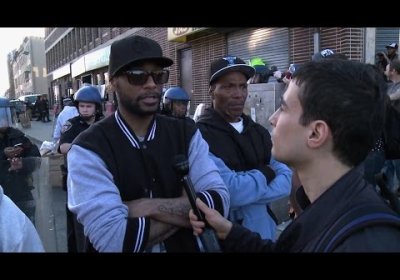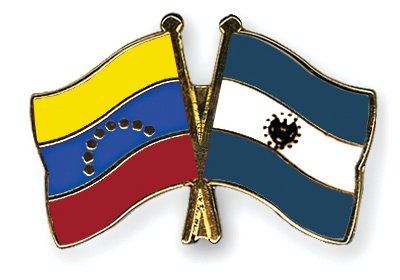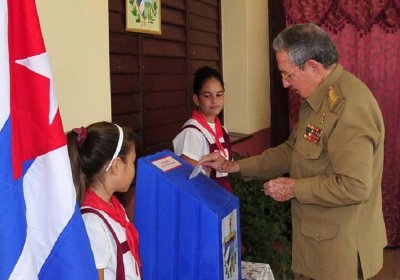During the final session of El Salvador's outgoing parliament on April 29, right-wing parties blocked a vote to ratify a constitutional reform that would have enshrined water and food as human rights. In doing so, the bloc of Nationalist Republican Alliance (ARENA), National Conciliation (PCN), and Christian Democrat (PDC) parties demonstrated their support for elite business interests over the health and wellbeing of the Salvadoran people.
Democracy
Democracy Now! reports from the streets of Baltimore, where an overnight curfew has taken effect following Monday’s riots sparked by the death of Freddie Gray, the 25-year-old African-American man who died of neck injuries suffered in police custody.
In California, the local chapter of the International Longshore and Warehouse Union has vowed to shut down ports on May 1 in a historic protest against police brutality, Democracy Now! reported.
Democracy Now! on the anger that has exploded in Baltimore.
The United States is threatening the small Central American country of El Salvador with financial repercussions for supporting Venezuela's campaign for the repeal of US sanctions against the country. The left-wing Farabundo Marti National Liberation Front (FMLN) government of Salvador Sanchez Ceren, together with all of countries of Latin America and the Caribbean, has called on US President Barack Obama to repeal his executive order declaring Venezuela to be a “threat” to US national security.
More than 7.7 million Cubans out of 8 million registered voters cast their ballots on April 19 to elect nearly 12,600 delegates out of about 27,000 candidates to the country’s Municipal Assemblies, TeleSUR English said the next day.
Saudi Arabia’s month-long aerial offensive against Yemen resumed on April 22, one day after the Saudi regime announced it was over. Yemen is undergoing a humanitarian crisis, with millions of Yemenis lacking basic access to food, clean drinking water and health care. The Saudi bombardment has only worsened the plight of the Yemenis, with schools destroyed, hospitals and healthcare facilities targetted, and electricity supplies cut off. Basic infrastructure is being shattered, threatening a catastrophic health crisis for Yemeni residents.
The International Trade Union Confederation (ITUC), campaigning groups and labour-supporting members of the European parliament launched protests this month about the continued harassment and jailing of trade unionists and democracy campaigners in Swaziland. ITUC general secretary Sharan Burrow has noted that, in Swaziland, “Violations against the fundamental rights of workers have become systemic”.
- Previous page
- Page 307
- Next page











